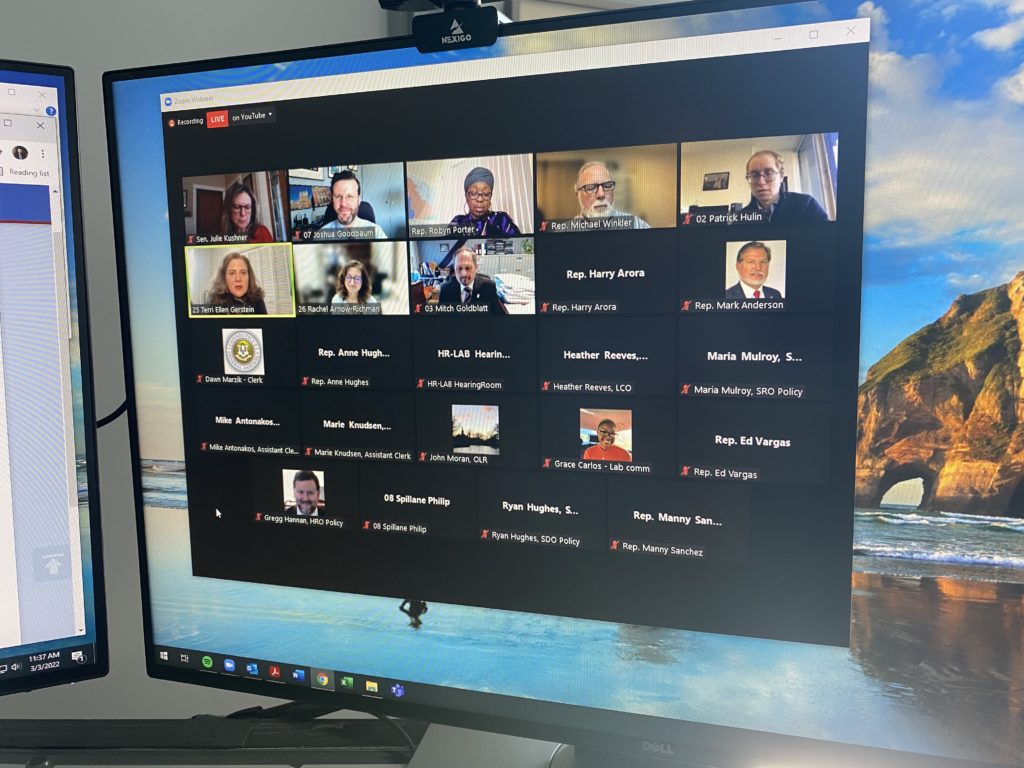Posted by Garrison, Levin-Epstein, Fitzgerald & Pirrotti, P.C. in News
Mar 3 2022
On March 3, 2022, Garrison, Levin-Epstein, Fitzgerald & Pirrotti Partner Joshua Goodbaum testified to the Labor & Public Employees Committee of the Connecticut General Assembly in support of HB 5249: An Act Concerning Non-Compete Agreements.
As a Connecticut non-compete lawyer, Josh frequently represents Connecticut employees challenging overbroad non-competes. As Josh explained in his testimony:
Employment in Connecticut – as in almost every other U.S. state and territory – is “at-will.” This means that, unless they have the benefit of a collective bargaining agreement or another employment contract, Connecticut’s workers can be terminated from their jobs for any reason or no reason at all, so as long as the reason is not an unlawful one. The theoretical underpinning of this doctrine is that, if employees may leave their jobs without reason or warning, then employers likewise should be free to terminate their employees without notice or cause.
The growing prevalence of covenants not to compete in Connecticut and around the country undermines this theoretical trade-off. For while employers remain free to terminate their employees at-will, employees increasingly cannot leave their employment for a better position in their same industry because doing so would violate their non-competes. Employees with non-competes, in other words, can leave their jobs only in theory; in practice, they have no choice but to stay. This dynamic reduces employees’ bargaining power and contributes, in the aggregate, to reduced job mobility and stagnant wage growth. And this dynamic is not just theoretical: we regularly counsel Connecticut employees who have received more lucrative and more attractive job offers but are uncertain whether they can accept them because of the ambiguous non-competes they previously signed.
Josh’s testimony describes several ways that HB 5249 would help improve life for Connecticut employees, including limiting non-competes to a reasonable scope, restricting non-competes to higher-income workers, providing employees with notice so they may review the agreement, and clarifying that Connecticut employees can litigate their non-competes in Connecticut courts under Connecticut law.
The lawyers of Garrison, Levin-Epstein, Fitzgerald & Pirrotti, P.C. have been advocating for employee and civil rights throughout Connecticut for more than 45 years. From our offices in New Haven, we provide award-winning representation in all aspects of Connecticut employment law.
Posted by Garrison, Levin-Epstein, Fitzgerald & Pirrotti, P.C. in News
Tagged Joshua Goodbaum









